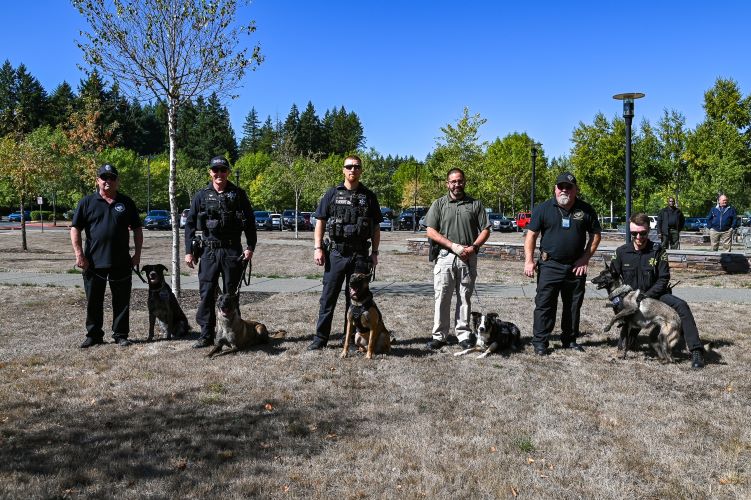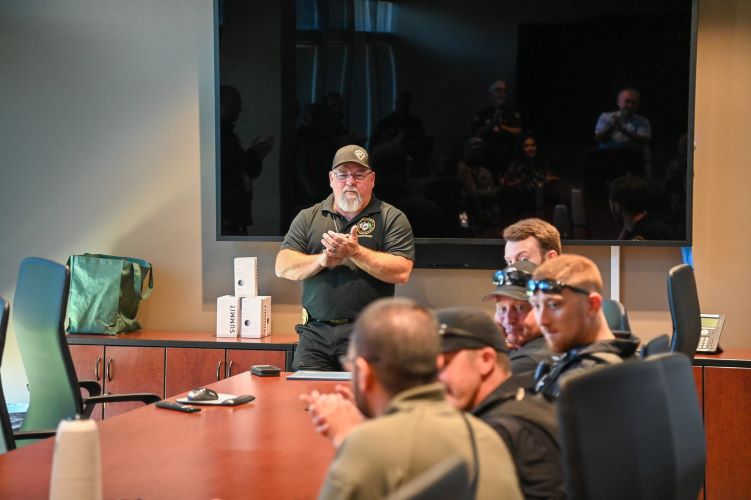Narcotic Detection Dog Handlers Celebrate Graduation
October 18, 2023
By Brendan Baptiste (email) Communications Office
K-9s and their handlers graduated from the WA DOC Canine Training Program.
(Photo courtesy of Brendan Baptiste, Communications Office)
On one of the final days of summer, the Department of Corrections (DOC) Headquarters was filled with excitement and anticipation as DOC staff and Sherriff Deputies from Thurston County, Okanogan County, and Deputies from Chelan County Regional Justice Center gathered to witness the graduation of the newest teams of K-9 narcotic dog handlers. The event, a culmination of 200 hours of rigorous training and unyielding dedication, not only marks a significant milestone for the handlers and their canines but also underscores the department's commitment to strengthening security and curbing illicit activities across the state, jails and correctional facilities.
The newest Class of 2023 consisted of five handler-dog duos who have undergone specialized training to detect narcotics, a pressing concern in correctional facilities. Illicit substances in our neighborhoods, prisons, and jails can lead to a myriad of issues, including violence, overdose, and the furtherance of criminal enterprises. Deploying these highly trained canines has shown to be an effective strategy in slowing down drug smuggling and distribution.
Their role in drug detection has been invaluable to law enforcement and security operations worldwide. These highly trained canines’ posses a heightened sense of smell, allowing them to detect even minute traces of illicit substances, including fentanyl, that might go unnoticed by human officers. Beyond their operational efficiency, K9 units also act as a deterrent discouraging potential offenders.
The ceremony began with an opening address by K-9 Program Manager, Terry Hartman (email), who emphasized the importance of the K9 unit's role in ensuring a safer environment for both the public, incarcerated and staff. Hartman took over the program after the retirement of Barbara Davenport and has continued to push the program to new heights.
“With the drug crisis across our state, I am happy that we can help bring more resources to combat the issue. I’m proud to see how far the dogs and their handlers have come in a such a short amount of time,” says Hartman. “But the biggest reward for me is seeing our K-9 teams being utilized to keep our neighborhoods, jails, and prisons safe.”
As the ceremony concluded, the new K9 narcotic dog handlers, now fully certified, stepped forward, ready to embark on their respective missions across the state's correctional facilities. The graduation not only symbolizes their personal achievements but also stands as a testament to the Department of Corrections' relentless pursuit of maintaining the highest standards of safety and security.
In a world where the challenges faced by correctional institutions are ever evolving, the addition of these skilled K9 teams to the frontline is a move that promises a safer tomorrow for all. And as each handler-dog duo steps out into the field, they carry with them the hopes and aspirations of a department and a community that believes in their ability to make a difference.

